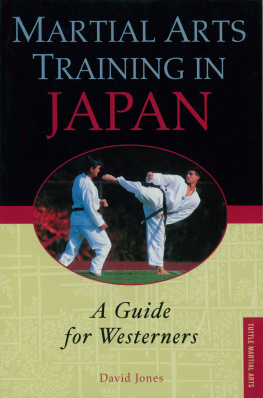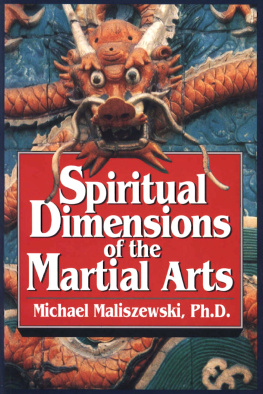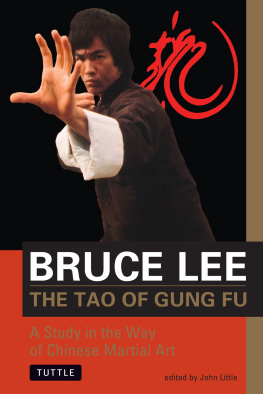The Power Trip
How to Survive and Thrive in the Dojo
Book
Methods for Learning the Martial Arts,
Setting Goals, and Getting Motivated
by Martina Sprague
Copyright 2012 Martina Sprague
No part of this book may be reproduced in any form or by any means, electronic or otherwise, without the prior written permission of the author.
Disclaimer
Always use caution when practicing the martial arts. The reader assumes full responsibility for injuries incurred by doing the exercises in this manual.
TABLE OF CONTENTS
Introduction to the Power Trip Series
Learning Good Skills
What is Learning?
Factors of Learning
Transfer of Learning
How We Learn
Learning through Visualization
Benefits of Experience
Introduction and Explanation of an Organized Lesson
Demonstration
Application
Summary, Review, and Evaluation
Student Interaction
Concepts and Exercises
Defining Goals
Instructor Motivation
Student Motivation
Beginner Student Motivation
Intermediate Student Motivation
Advanced Student Motivation
Ten Motivation Tips
INTRODUCTION TO THE POWER TRIP SERIES
Many students have little knowledge of what to expect or how to increase motivation, retention, and rate of learning when first signing up to study the martial arts. You are left in the hands of an instructor who is often a student himself, not a teacher by profession, and who has little or no knowledge of the learning process or the psychology of teaching. As a result, the instructor simply states the factsthis is the name of the technique, and this is how it is donewithout considering why the technique is done, the concepts behind it, and how to tailor it to fit your individual traits.
Learning the facts, or learning the mechanics of a technique, is the first stage of learning. But if you fail to go beyond rote memorization, you are unlikely to gain proficiency even in the simplest techniques. To understand this idea better, I like to use the analogy of the martial artist and the historian. The historian does not merely memorize battle dates and names of great generals. He or she studies with the intent of uncovering the underlying currents which shaped those events and learn from them. The same is true when learning the martial arts. Whether learning from a book or through hands-on experience, the underlying currents help you understand why a technique or concept is important. For example, a recent article about self-defense for the street stated, No matter how scared you are, dont let your emotions The fact is, Dont let your emotions show. While it is easy to agree with this statement, theoretical knowledge of the fact does not make you proficient at performing or understanding the technique. When confronted with life and death, just how do you learn not to let your emotions show?
As students of the martial arts, we often go to the training hall without considering exactly what we can do to further our learning. The glory is in performing our art and not in pondering the learning process. The purpose of The Power Trip series is to educate you about the science of learning, instill confidence through familiarization with and recognition of a multitude of scenarios, and give you the power to act when you encounter specific problems. It is about making your education more profitable by showing you why rather than what to learn, and showing you how to teamwork with your instructor and peers even when your instructor and peers are uneducated about the learning process and cause you problems. The Power Trip series will give you the power to survive and thrive in the Dojo, by showing you how to recognize and counter situations when your instructor or peers are sitting on their high horses ready to go on a power trip that can prove to be more than a nuisance to you.
Furthermore, by looking at different situations from both the students and instructors viewpoint, you will learn about the many difficulties the instructor faces. The insights you gain will help you appreciate the instruction more and give you options for a mutually productive learning experience. You will learn how to turn a mediocre training session into an advantage, where everything your instructor and peers say and do is used for your gain.
As you continue deeper into your training remember that, although it is your instructors responsibility to help you progress in the martial arts, it is equally much your responsibility to help your instructor pave the way for good learning to take place. I once overheard a conversation between two ladies discussing how much fun it was going back to college years after graduating from high school. One lady said that she didnt understand why the youngsters dont want to go to school, when you just sit there and get spoon fed. But learning is a two-way street and often not as simple as taking in what is fed to you. Your instructor, no matter how talented, is only half of the learning process. Although you cant do much about your instructors teaching methods, you do have considerable control over how you approach the lessons. The Power Trip series will show you how to extract the information that your instructor and peers possess but dont necessarily know how to express, so that next time you go to class you can meet your instructor halfway and contribute with the missing half that makes the learning process whole.
It has been said that forewarned is forearmed. If you are a new student in the martial arts, ready to sign up for your first lesson, this study will give you a lot of information about the difficulties you can expect to encounter sometime throughout your training, and give you options for resolving potential conflicts. If you are a seasoned martial artist with years under your belt, you will no doubt recognize many of the scenarios presented, and be able to look back at your journey and consider what you could have done differently. This study will also arm you for the day you will begin teaching the martial arts (or help you improve your technique if you are already teaching) and show you how to build your integrity and repute as an instructor. Since the advice is not style specific but explores a multitude of scenarios that frequently play themselves out in the martial arts training hall, it applies to students of most martial styles.
LEARNING GOOD SKILLS
Many adults marvel at the way a small child can repeat the alphabet, or how the child can look at a world map, point to the many countries, and name them all correctly. But would it be fair to say that this child has developed a skill? Suppose that the same child comes home from school one day and says, Mommy, Daddy, I can read! You get the books out of the childs backpack and listen as the child reads out loud to you. Has the child developed a skill? Today, when reading is second nature to you, how many times have you caught yourself reading a paragraph and have no idea what you just read? Does merely being able to read make reading useful? Does the ability to name the countries of the world evoke insight and understanding of the people who live there? Anyone off the street can imitate the roundhouse kick on her first try with just the slightest amount of coaching. If you spend one week with this person and teach her to memorize a hundred techniques, would it be fair to say that she has developed the skills of self-defense?
It takes time and opportunity to learn. Your primary responsibility as a student is to learn good skills until you understand your art completely: every movement, every concept. Part of learning encompasses mechanics of technique; the other part encompasses proper thinking. If you simply learn technique, you will never understand your art completely. When you truly understand technique and concept, you are indeed a rare individual.














